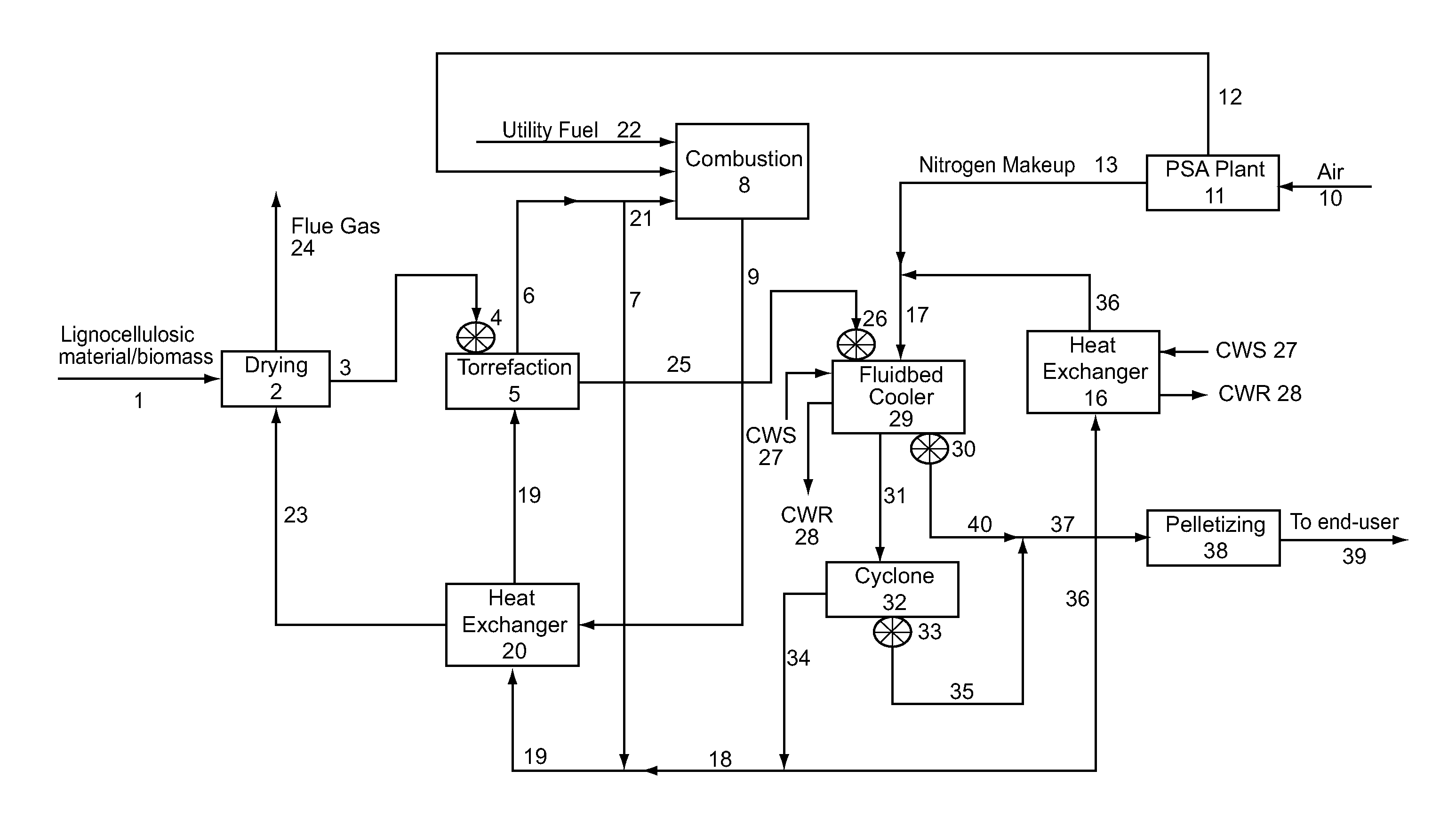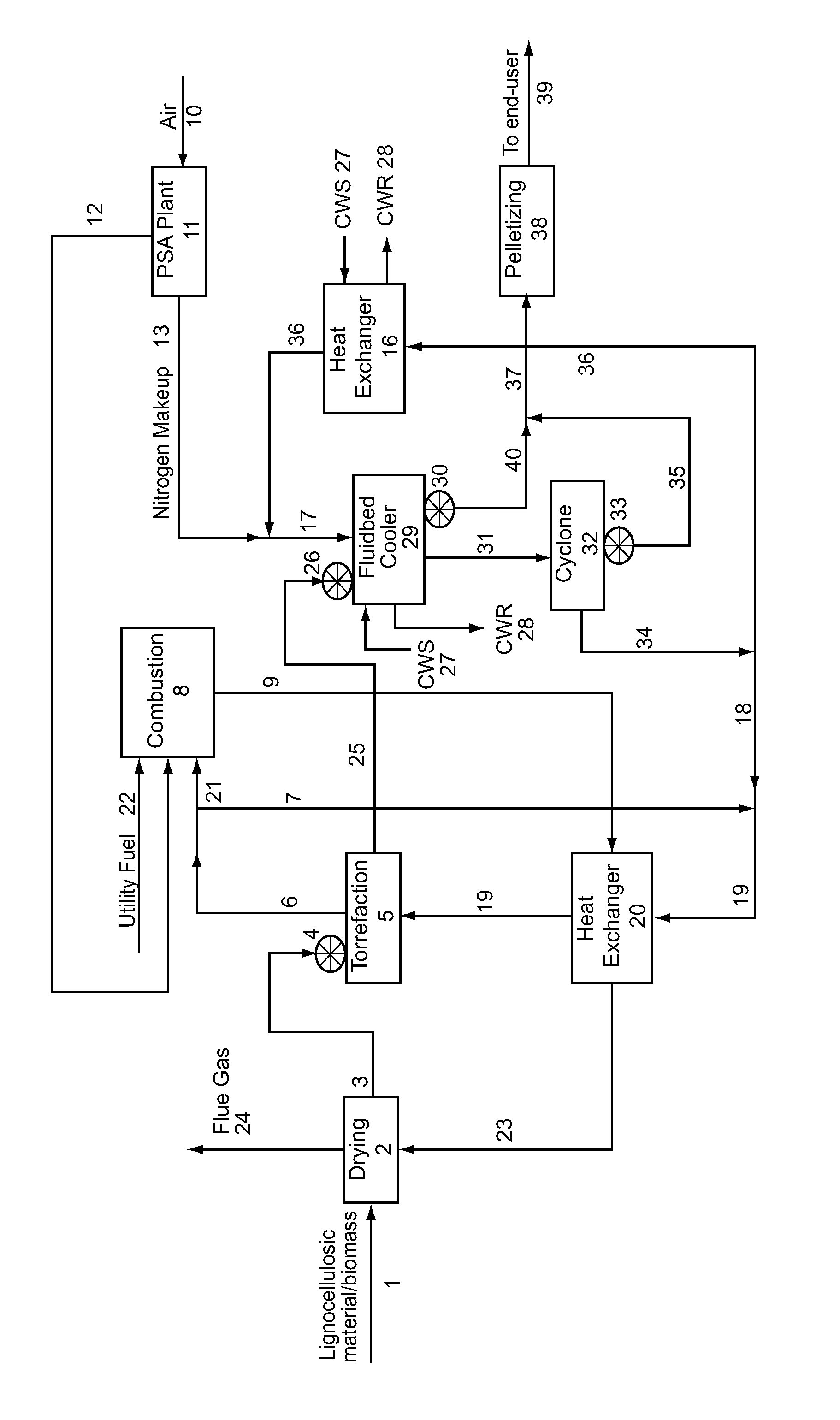Method and system for the torrefaction of lignocellulosic material
a technology of lignocellulosic material and torrefaction method, which is applied in the field of torrefaction of lignocellulosic material, can solve the problems of undeveloped commercial processes
- Summary
- Abstract
- Description
- Claims
- Application Information
AI Technical Summary
Benefits of technology
Problems solved by technology
Method used
Image
Examples
Embodiment Construction
[0011]FIG. 1 schematically illustrates a commercial-scale facility capable of torrefaction of biomass (lignocellulosic material). The embodiment of FIG. 1 takes advantage of heat from the process while maintaining an oxygen-free (i.e., substantially oxygen-free) environment, which is beneficial for safe, efficient operation.
[0012]In the illustrated process, biomass material is fed via conduit 1 to a drying device 2, which is any conventional or nonconventional drying device capable of removing between 85 and 98% of the moisture present in the biomass. In the illustrated drying device 2, the moisture present in the biomass is removed by energy supplied via hot gas 23. The dryer may remove a sufficient amount of moisture such that an absolute moisture content of the dried lignocellulosic material is less than 15% of the total weight of the lignocellulosic material. In the depicted embodiment, hot gas in conduit is the result of flue gas in conduit 9 from the combustion unit 8 after th...
PUM
| Property | Measurement | Unit |
|---|---|---|
| temperature | aaaaa | aaaaa |
| temperature | aaaaa | aaaaa |
| pressure | aaaaa | aaaaa |
Abstract
Description
Claims
Application Information
 Login to View More
Login to View More - R&D
- Intellectual Property
- Life Sciences
- Materials
- Tech Scout
- Unparalleled Data Quality
- Higher Quality Content
- 60% Fewer Hallucinations
Browse by: Latest US Patents, China's latest patents, Technical Efficacy Thesaurus, Application Domain, Technology Topic, Popular Technical Reports.
© 2025 PatSnap. All rights reserved.Legal|Privacy policy|Modern Slavery Act Transparency Statement|Sitemap|About US| Contact US: help@patsnap.com


